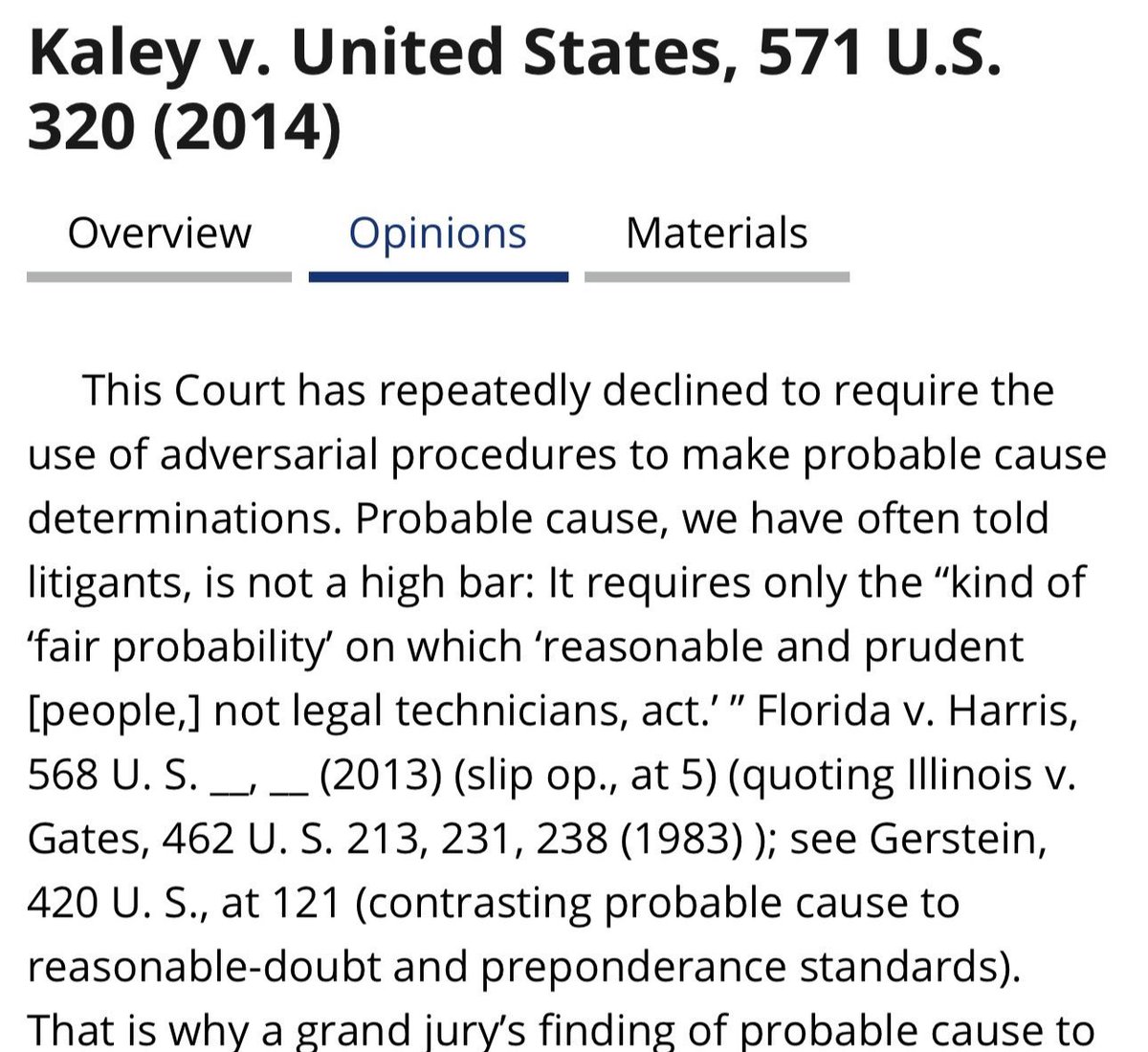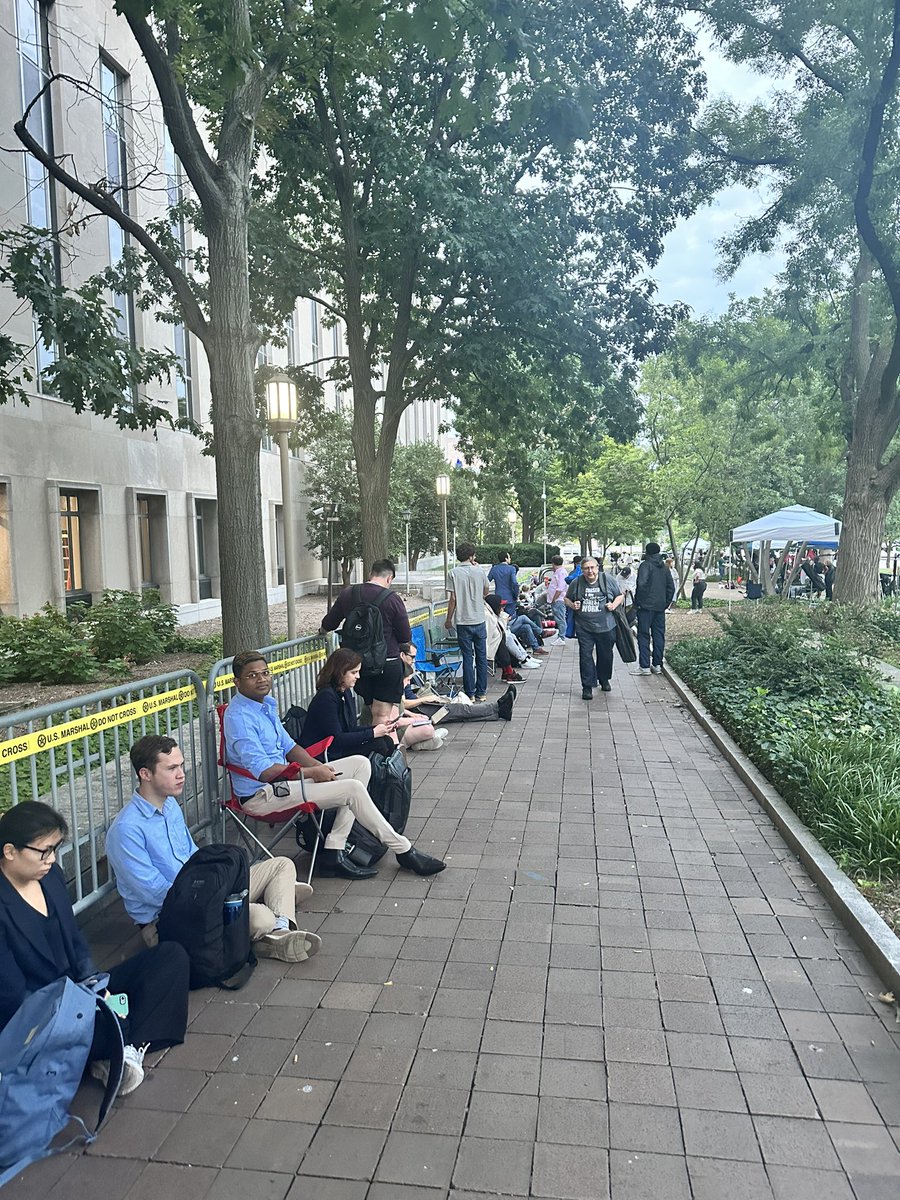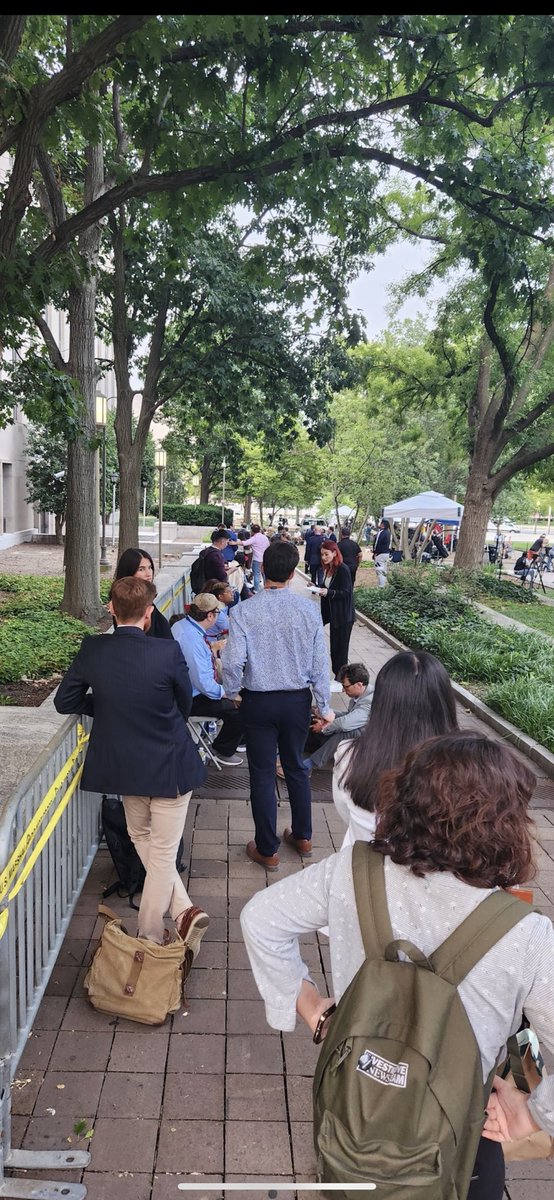The Fulton County DA is set to bring charges related to her 2020 election probe.
I’ve chronicled legal events related to the probe in neurotic detail for more than a year @lawfare.
I’ll be at the courthouse in the coming days as the case enters a new phase: the indictment🧵👇
I’ve chronicled legal events related to the probe in neurotic detail for more than a year @lawfare.
I’ll be at the courthouse in the coming days as the case enters a new phase: the indictment🧵👇
The action will begin on Monday, when the district attorney is expected to begin presenting evidence to the grand jury.
As I have explained, presentation of evidence will probably take about 2 days.
By Tuesday evening, we’ll likely see the indictment.
https://t.co/3TRilPRAwr
As I have explained, presentation of evidence will probably take about 2 days.
By Tuesday evening, we’ll likely see the indictment.
https://t.co/3TRilPRAwr
https://twitter.com/annabower/status/1690414773761163264?s=46&t=G_8uQ34IDrvrFy9lofZOCg
https://twitter.com/annabower/status/1690414773761163264
You might be surprised by how quickly the jurors could return an indictment in a complex case like this one.
But recall that Willis used a special purpose grand jury to collect evidence.
The SPGJ received evidence & heard testimony from 75+ witnesses.
lawfaremedia.org/article/everyt…
But recall that Willis used a special purpose grand jury to collect evidence.
The SPGJ received evidence & heard testimony from 75+ witnesses.
lawfaremedia.org/article/everyt…
Under Georgia law, special purpose grand juries aren’t authorized to indict. They can only issue a report recommending indictments.
While much of that report remains under seal, the SPGJ foreperson has indicated that it recommended multiple indictments.
nytimes.com/2023/02/21/us/…
While much of that report remains under seal, the SPGJ foreperson has indicated that it recommended multiple indictments.
nytimes.com/2023/02/21/us/…
All of which is why Willis must present her case to yet another grand jury—a regular grand jury.
She must convince 12 out of at least 16 grand jurors that there is “probable cause” to believe that the accused committed the crime(s).
She must convince 12 out of at least 16 grand jurors that there is “probable cause” to believe that the accused committed the crime(s).
Probable cause is an extraordinarily low standard of proof.
It doesn’t even require a showing that criminal conduct “more likely than not” occurred.
In order to secure an indictment, prosecutors just need to show that there is a “fair probability” of criminal activity.
It doesn’t even require a showing that criminal conduct “more likely than not” occurred.
In order to secure an indictment, prosecutors just need to show that there is a “fair probability” of criminal activity.

The usual rules of evidence—e.g. hearsay—don’t apply in grand jury proceedings.
And there’s all kinds of evidence the DA could use: documents, transcripts, audio or video recordings, the special grand jury report.
Some witnesses have been summonsed to appear in person.
And there’s all kinds of evidence the DA could use: documents, transcripts, audio or video recordings, the special grand jury report.
Some witnesses have been summonsed to appear in person.
The evidence will be tailored to showing probable cause for the elements of the alleged crimes.
As I put it yesterday: think of it as a highlight reel of the strongest evidence.
In the past, similarly complex cases have been heard in about 2 days. That’s what we expect here.
As I put it yesterday: think of it as a highlight reel of the strongest evidence.
In the past, similarly complex cases have been heard in about 2 days. That’s what we expect here.
If and when an indictment is handed up by the grand jurors, the bailiff will walk the indictment down to the courtroom of the presiding judge.
Scheduled to preside this week is Judge Robert McBurney, who supervised the special grand jury’s probe into 2020 election interference.
Scheduled to preside this week is Judge Robert McBurney, who supervised the special grand jury’s probe into 2020 election interference.

McBurney, you might recall, is the judge whom Trump sought to disqualify from the case earlier this year.
But if Trump is criminally charged on in Georgia on Tuesday, it will be McBurney who receives the indictment from the bailiff in open court, as required by state law.
But if Trump is criminally charged on in Georgia on Tuesday, it will be McBurney who receives the indictment from the bailiff in open court, as required by state law.
Presentment of the indictment is usually a no-frills affair.
The judge is not required to announce the names listed on the indictment.
We don’t know what McBurney will do here. But given public interest in the case, he might choose to announce the names or charges in court.
The judge is not required to announce the names listed on the indictment.
We don’t know what McBurney will do here. But given public interest in the case, he might choose to announce the names or charges in court.
In Georgia, indictments aren’t filed under seal as they sometimes are in the federal system.
After the indictment is handed up to the judge, it will be brought to the clerk’s office to be stamped, filed, and made available to the public.
After the indictment is handed up to the judge, it will be brought to the clerk’s office to be stamped, filed, and made available to the public.
So, this won’t be like the NY case or classified docs case, both which involved a significant delay between return of the indictment & public access to the document.
Here, there could be a slight delay as the clerks copy the indictment, but i expect it will be just that—slight.
Here, there could be a slight delay as the clerks copy the indictment, but i expect it will be just that—slight.
In the coming days, I’ll be at the courthouse to report as it all goes down.
We @lawfare will bring you detailed coverage and analysis as events unfold.
I hope you’ll follow along!
We @lawfare will bring you detailed coverage and analysis as events unfold.
I hope you’ll follow along!
• • •
Missing some Tweet in this thread? You can try to
force a refresh

 Read on Twitter
Read on Twitter





